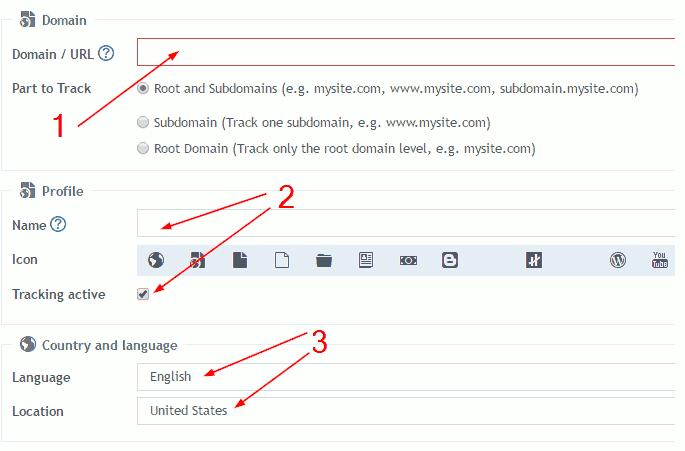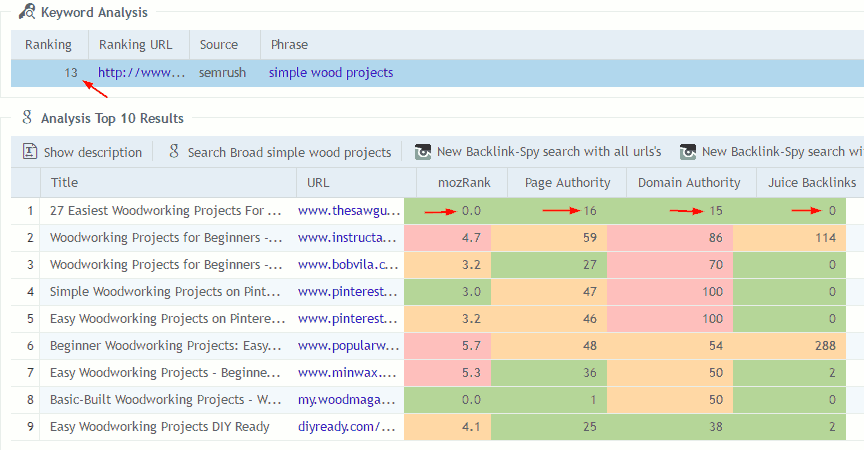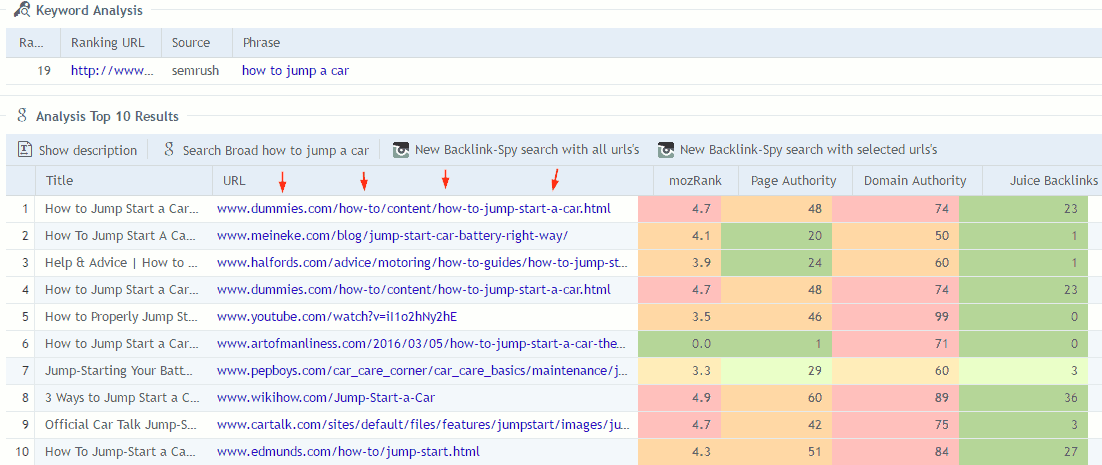In the ongoing quest to find keywords that will bring more traffic to your website you can be forgiven for wanting to embark on a bit of keyword spying.
To quickly check keyword rankings of a competitor and use their most profitable keywords in your content would surely result in more traffic coming your way wouldn’t it?
To be honest it’s not as simple as that.
What if after checking the keyword ranking of a website all you end up with is a collection of keywords that are high in search volume but very difficult to compete for? Do you try and compete for these high competition keywords or carry on searching for alternatives?
Although the high search volume may be tempting you to compete for them, realistically you know you could be wasting your time and the best thing to do would be to carry on searching.
You could uncover keywords that are easy to rank for but have low search volume. Although it would be nice to hold the top spot on Google, there’s not much point if it’s not going to bring you any visitors…so it’s back to searching again.
This can be a laborious task if all your searches keep coming up with the same results, so what should you do? Answer: Find the keywords of your competitors that are low in competition and have enough search volume to make them worth competing for by using keyword tools that are made to do the job.
These keyword ranking tools do come at a price. However, if you are looking to save time and acquire data that is far superior compared with what you get from free tools, then a paid tool could be what you are looking for.
Downside of Free Competitor Analysis Tools
This is my own personal view.
I have come across many bloggers who are very happy using free tools and will continue to do so.
But for me there were two issues that stopped me using the free versions:
1 – Time. It used to take me hours of work for limited results. After finding a competitors keywords using one free tool, I would then have to use many other free tools to attempt to find the true competition of the keywords.
2 – I Consider Them to be Pointless. Free competitor analysis tools – as well as providing limited data – show the same keyword results to anyone who uses them. This made me ask the question of what chance did I have of standing out from the crowd if I used the same frequently used keywords as everybody else?
Free analysis tools are free for a reason and by using them it is highly unlikely that you will find many untapped keywords – keywords that not many people are competing for. These “untapped keywords” are the keywords you need to be targeting. They could prove to be invaluable as they have the potential to bring hundreds of new visitors to your site each day.
On the other hand paid competitor analysis tools cost money for a reason. Have you ever used a trial version of a paid analysis tool? If you have, the chances are after the initial taster and realising its capabilities you are left wanting more.
Competitor Keyword Analysis Tool
The tool that I currently subscribe to is Traffic Analysis which has been developed by a company called SwissMadeMarketing. The initial package of Traffic Analysis allows you to analyse your own site. This is done by linking Traffic Analysis to your Google Analytics and Webmaster Tools accounts.
For a more in depth analysis of your own site and your competitors you can upgrade. These upgraded packages do cost more because they utilise data from the crawling services of SEMrush and Searchmetrics.
You can find more information on Traffic Analysis by clicking here.
Traffic Analysis Demo
For this demo I am using a well-established website that is ranking for thousands of keywords. I will not be disclosing which website it is and I chose it to demonstrate how quickly Traffic Analysis can analyse a large site.
Ok here we go.
First
1 – Enter the domain you are competing with.
2 – Check “Traffic active” and enter a profile to give the results a name. If left blank it will use the domain name as default.
3 – Select “Language” and “Location”. For this demo I used English and United States.

Next
4 – Enable SEMrush and enter a keyword limit.
5 – Enable Searchmetrics and enter a keyword limit.

Now click on “Save and close” which is at the top of the screen. (not shown in screenshot)
Now you have to wait a little while for the results to appear. This particular analysis took around 1 hour and 15 minutes and returned 3386 keywords….

…..all with competition data, source information, monthly searches, CPC, ranking URL’s and their position in Google search results.
There are many more filters that can be selected to give more data. For this example I have limited it to the above or I would have had trouble fitting all the data columns in the screenshots.
Keyword Competition Analysis
Now it’s time to take a look at your competitors keywords to see if any are worth competing for.
FYI the orange bars in the following screenshots relate to the competition of the keyword. The less of the orange bar you see, the easier it is to rank for that keyword on the first page of Google.
Example 1
This URL is aimed at the niche of woodworking projects. The keyword ranked at thirteen on Google has a decent monthly search volume and is relatively low in competition.

You can see what your chances are of ranking for this keyword on the first page of Google by clicking on the keyword. This will take you to a screen, shown below, which provides detailed analysis data on the websites that are occupying the first page of Google for the keyword you have selected.

Here you can see your competitor is ranked position thirteen for the keyword “simple wood projects”. But look at the webpage holding the top spot….no backlinks, low domain and page authority and zero MozRank. (If you didn’t already know, MozRank is SEOmoz’s version of Google PageRank) So ranking on the first page of Google for this keyword looks achievable.
You will have no doubt noticed four of the websites below the top spot have very high domain authority – 100 being the highest. However, don’t let this stop you competing for a keyword you find on a high authority domain. Take a look at the following which is an extract from the Traffic Analysis training manual:
“In practical terms, if you see pages in the top results that have high Domain Authority but low backlink numbers and low Page Authority, you can probably knock them out with a highly optimized page relatively easily. If, on the other hand, you see pages with high Domain and Page Authority values, you’ll have a harder time breaking into the top results.”
I think the above screenshot proves this is the case.
Example 2
This URL is ranking for five keywords of which four of them already rank on the first page of Google. So let’s take a look at the keyword ranked eleventh. It has a lot of monthly searches and appears easy to compete for.

Again it looks achievable to rank for this keyword on the first page of Google.

Example 3
The next URL is ranking for two keywords. Do you remember what I said earlier about being tempted by keywords that have high search volume but are difficult to compete for? The keyword ranked at fourteen is one of those. Instead it would be easier to compete for the other keyword which still has a decent amount of monthly searches.

This doesn’t look too difficult to rank higher than your competitor for this keyword.

Example 4
For the last example I decided to set the filters to very high monthly searches… over 20000…. and very low competition …less than 25. Here are the results….

The keyword “how to jump a car” has over 60000 monthly searches and appears easy to rank for. Although I think we all know that in most cases when someone types this in to Google they are looking for the answer of “how to jump start a car”. So what could you do to take advantage of a keyword like this?
You would find it hard to use this keyword in the content of your post without it looking like a mistake. However, why not use it in the URL as this is one place where it wouldn’t look odd.
The screenshot below shows the websites ranking for this keyword and not one of the URLs include the keyword.

By using this keyword in the URL of a well optimized post you stand a reasonable chance of ranking on the first page of Google.
Conclusion
I hope I have demonstrated how powerful a competitor analysis tool can be. To put it into perspective – for me to uncover 3386 competitor keywords along with bucket loads of data for each keyword, and find keywords to use in the above examples, it took me less than three hours.
You can also expand on the keywords you get from an analysis tool by entering them into a keyword research tool.
However, although these tools give you keywords that are easy to rank for, never forget your main aim is to produce quality content for your readers. If your chosen keywords blend in naturally with your quality content, you could be onto a winner.
Your article has definitely educated me. Rank Tracker Tool is another tool to automatically monitor various parameters of a website such as serp, backlinks etc. Check it out: http://www.ranktrackertool.com.